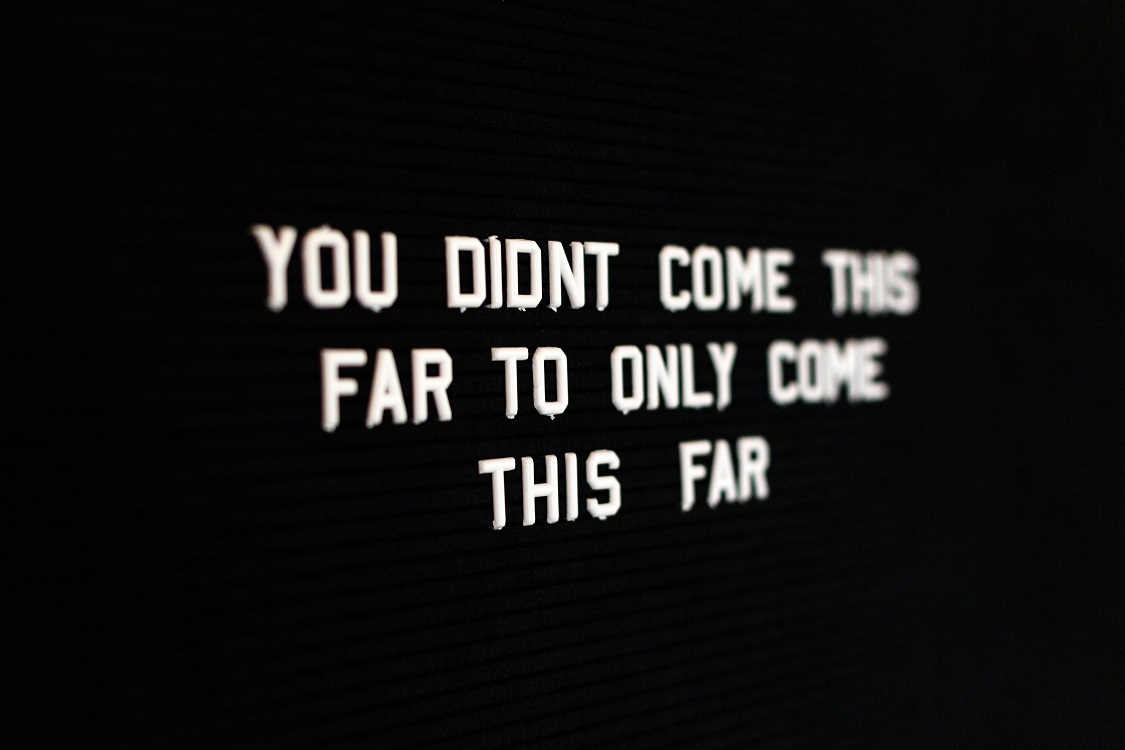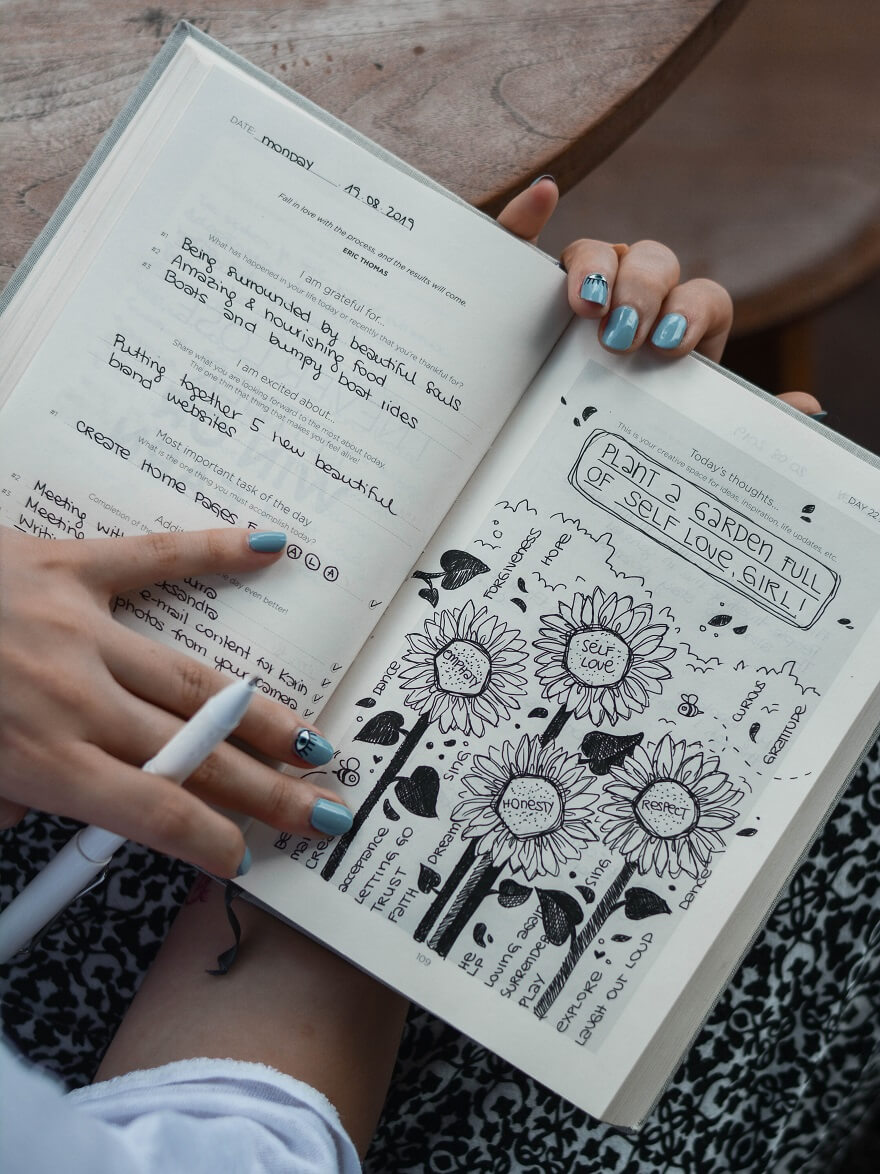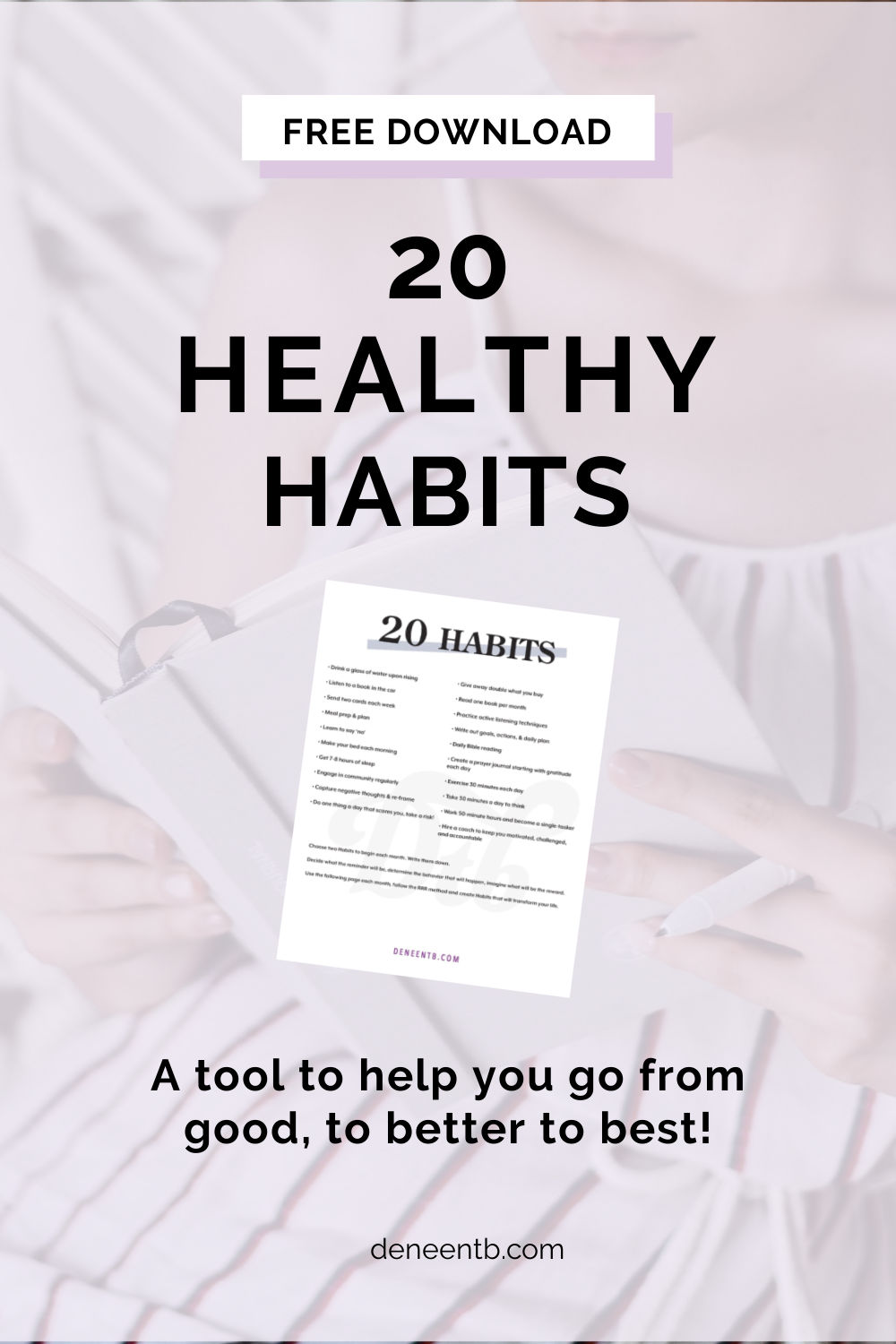I need to have more discipline!

I need more willpower!
Raise your hands in the air if you’ve said those words!
What if I told you having less stress and having more success in your life had nothing to do with discipline and everything to do with habits?
So, then what is the answer to – how to have more discipline = creating habits! Habits will give you less stress, help you perform tasks with ease, and provide growth in all areas of your life.
There are three simple steps to create new habits or stop existing ones. These steps will help you organize what is important to you and build your confidence to achieve anything you set your mind to do. But, first, let’s look at the habits of others.
Habits of Others
Here are the eight habits of successful people. Studies have proved that a successful person:
- Get up early
- Read daily
- Prioritize Self-Care
- Take 15-30 minutes of focused thinking
- Make time for meaningful relationships
- Follow a daily routine
- Pursue their own goals
- Get enough sleep
How do your habits stack up to the list above? There is power in creating positive habits that will make your life better and easier to manage.
You Are Your Habits
You know how it is said, “you are what you eat?” Well, “you are your habits.” Think about how you brush your teeth, the order you shower your body parts, tie your shoes, or how you get dressed. There are even bigger learned behaviors, like driving your car or checking email every time it dings.
If you’re not convinced you are the sum of your habits, do this exercise for just one day: bring awareness to your day and see how many things you do as routine: get coffee, arrange your desk, open social media, etc. Just notice it. These routine things you do each day do not require you to think, and you do them. That’s the power we need to harness to create a new behavior or change an existing one.
The Excuses We Make
We all have a problem! Have you ever thought or heard yourself say”
“I work better under pressure.”
“Forces beyond my control are keeping me from doing this.”
“I need to be in the mood to do this.”
“I got interrupted by…”
These excuses point to a procrastination problem.

Excuses won’t help you accomplish your life goals. Procrastination excuses will only give you more stress and less success. You can do this, and you control yourself and the small daily choices you make.
How to Have More Discipline
Harness the POWER of habits and learn how to have more discipline by remembering these three words. Reminder-Routine-Reward. These three words can become your mantra to a successful, stress-less life
Remember, developing a new habit is NOT about:
- An exercise in self-control
- A new dose of willpower
- A lack of motivation
Developing new habits are about creating a structure that will make you successful. Once in place, you have the tools to make any desire a reality in your own life.

The three power words are:
- Reminder – the trigger that initiates the behavior.
- Routine – the actual behavior, the action you take.
- Reward – the benefit you gain from doing the behavior.
Reminder
Picking the correct reminder for your new habit is the first step to making change easier. For your new habit or behavior, choose a Reminder to trigger your mind. Reminders can be a timer, an event, or an object placed strategically.
The best way to discover a good reminder for your new habit is to write down two lists. With these two lists, you’ll have a wide range of things you already do and respond to each day. Those are the perfect reminders for new habits.
In the first list, write down the things that you do each day without fail.
For example:
- Get in the shower
- Put your shoes on
- Brush your teeth
- Flush the toilet
- Sit down for dinner
- Turn the lights off
- Get into bed
Many of these items are daily health habits like washing your face, drinking morning tea, brushing your teeth, and so on. Those actions can act as reminders for new health habits. For example, “After I drink my morning tea, I practice deep-breathing for 60 seconds.”
In the second list, write down the things that happen to you each day without fail.
For example
- The traffic light turns red
- You get a text message
- A commercial comes on TV
- A song ends
- The sunsets
- You receive a text message
Many of these items are automatic events that happen without any initiation on your part. These events can act as reminders for new positive habits. For example, “When the traffic light turns red, I will practice focus on my breath and do deep breathing until the light turns green.

Make the New Habit a Priority
Once you decide on the new habit, put your reminder in place and then do it every day and:
- Restructure your environment by getting rid of things that keep you stuck. Set yourself up for success by removing temptation from in front of you (examples: junk food, Netflix, Facebook).
- Write down your plan. Take what is out of your head and put pen to paper! Write down the reason for doing the new habit and your reminder.
The 20 Habits Tool
I have compiled a list of 20 healthy and positive habits that will help you brainstorm ideas to implement in your life. The tool is a downloadable PDF called 20 Habits, and it will give you ideas and places to write your plan so you can see your progress.
When I was going through a new nutrition plan, I set alarms for my supplements, planned meals on Sunday for the week, and drank water at scheduled times. I even did squats after my shower to stay in hot water longer without guilt (you know, your mom in your head telling you not to waste the hot water).
My reason (goal) was to get off high blood pressure medicine. Now I live my nutrition plan, have lost 40 pounds, and don’t think about what I lost (bread) but what I have gained (stamina).
Routine
Your reminders will become part of your routine when there’s a reason. Then, when the reminder is triggered, just do the behavior. Here are a few more examples.
- When I stop at a red light, I whisper one thing I am grateful for to practice gratitude.
- At the end of my shower, I do three reps of 10 squats for strength.
- When I brush my teeth, I floss right after (because I have put the floss where I can see it) for healthy gums.
- When the alarm goes off, I get off Facebook (because I set the alarm before I go on) to not waste time on social media.
Take some time right now to think of a goal that could be turned into a habit – routine and write it down.
Here’s an example:
A personal goal for you right now may be to exercise for 30-minutes each day.
- Why? To get stronger, to lose weight, to breathe better, to be more active. You decide your WHY.
- What? What you are going to do: walk, Pilates, Zumba, Barre, etc. You decide the behavior.
- When? Think through your Reminder. What would make it significant for you? Perhaps a gym membership (because you like exercising with other people) and scheduling a class. Or before you take a shower (so you can work out in your P.J.s). Maybe a break in the afternoon once you have put in a few hours of work (to stretch and get the blood flowing in your body).

Just Do It
There is no thinking here. Don’t allow your procrastination excuses to take over. Prioritize it and be consistent. Do it no matter what.
Doing one behavior at a time for at least 30 days will become routine and part of your “M.O.” Consistent small behaviors add up to significant progress. When it becomes part of your lifestyle- it removes the stress and makes you feel like you have MORE because you are doing it!
Remember: This will only happen if you have made it a small behavior. Don’t think you will solve all your problems in one significant action. However, these behaviors are small and doable.
Reward
Rewarding yourself for making your positive habits is key to the routine. We all want to do what feels good, and even though there may not be immediate gratification, you know these habits will pay huge dividends in your future.
Make your reward something positive, say it aloud and repeat it often. Your reward can be something tangible like a new pair of shoes, coffee with a friend, getting a massage, or going on a vacation. Other rewards can be a feeling. Such as having more stamina, less back pain, or connecting on a deeper level with loved ones.
 Acknowledge your improvements, celebrate how you feel. Make it enjoyable so you will continue repeating the behavior.
Acknowledge your improvements, celebrate how you feel. Make it enjoyable so you will continue repeating the behavior.
Write down some rewards you can see for your goal.
Reframe Your Thoughts
Allow yourself to be imperfect. Prepare for days of doubt and frustration. When negative thoughts or procrastination excuses threaten to take over, reframe them (another bonus R-word). Turn each into an affirmation of your determination.
You have the power to change your thoughts.
2 Corinthians 10:3-5 says, “For though we live in the world, we do not wage war as the world does. The weapons we fight with are not the weapons of the world. On the contrary, they have divine power to demolish strongholds. We demolish arguments and every pretension that sets itself up against the knowledge of God, and we take captive every thought to make it obedient to Christ.”
When a negative thought enters, capture it, give it to God, and reframe it into something positive. Then, put a BUT after the thought and replace it with something positive that motivates you to continue.
Here is an example of reframing a negative thought: I will never exercise for 30-minutes a day, BUT I am improving every day as I continue to follow my plan, and I will get to 30-minutes.
What negative thoughts can you write down and reframe with the power of God’s Word and the word BUT?
Download the 20 Habits worksheet, start two new small and attainable habits a month, and continue stacking two more each month.
Remember, the small changes in just one area of your life reverberate to all the other parts. So harness the power of the 3R’s – Reminder, Routine, Reward- to change any behavior, positive or negative, into something beneficial and successful for you.
You have the power to change your life, your world.


Leave a Reply